Bruce DeSilva's Blog, page 43
July 3, 2012
Falling for Catlin Strong, Jon Land’s Sexy, Courageous Heroine
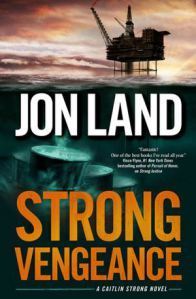 I‘ve always preferred strong, capable women.
I‘ve always preferred strong, capable women.
No surprise, then, that I’ve fallen for Texas Ranger Catlin Strong, the hero of a series of thrillers by veteran novelist Jon Land. Catlin, the scion of three generations of rangers, is tough, incorruptible, sexy, courageous, and as sharp as they come. And she shoots as fast and straight as any of her legendary ancestors.
As I wrote in a review of a previous Catlin Strong adventure, she brings to mind a female version of John McClain of “Die Hard,” from her unlikely feats of superheroism to her passion for those closest to her.
Now Catlin is back in Strong Vengance, the forth book in the series. This time, her investigation of a fatal explosion on an offshore oil rig leads her to suspect a wider terrorist plot that threatens the lives of tens of thousands of Americans.
The high-octane yarn involves, among other things, a home-grown Muslim cleric, Catlin’s thug-turned-good-guy boyfriend, a cover-your-butt-at-all-costs Homeland Security official, and the long-unsolved murder of some college frat boys. It also includes a surprising connection to a Texas legend: the attack on a treasure-bearing slave ship by Jim Bowie and Jean Laffite off the Texas coast in 1818.
Like the other books in the series –including Strong at the Break , which was named one of the top thrillers of the year by Library Journal and one of the best books of the year by Strand magazine–the new one is fast paced, action-packed, and a hoot to read.
You can find all the Catlin Strong books here.
Disclosure: I’ve known Jon for several years and consider him a friend. He even helped get my first Liam Mulligan novel, Rogue Island, published by by recommending it to an editor at his publisher. But if I didn’t enjoy his books, I wouldn’t recommend them. I’d just keep my mouth shut.








June 29, 2012
Look who’s reading “Cliff Walk” now! It’s acclaimed crime novelist Thomas Perry!
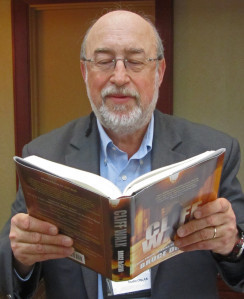 Tom is the author of the Jane Whitefield novels, which I have always admired. You can find out more about him here.
Tom is the author of the Jane Whitefield novels, which I have always admired. You can find out more about him here.Cliff Walk is the second novel in my crime novel series featuring Liam Mulligan, an investigative reporter for a dying newspaper in Providence, R.I. The first book, Rogue Island , won both the Edgar and Macavity awards and was a finalist for the Shamus, Anthony, and Barry Awards.
You can find both Mulligan books here.








June 27, 2012
Mulligan, Hero of My Crime Novels, Get’s Interviewed By a Music Magazine
Mark Gould of Sound Waves Magazine got in touch with me the other day and said he wanted to interview Liam Mulligan, the hero of my crime novels, about his taste in music. I can’t speak for Mulligan, I told him. Why don’t you ask him yourself?
He did, and here’s the result.
By Mark T. Gould
Writer’s note: Liam Mulligan, who seriously dislikes his given first name, is the hero of two spectacular novels by Bruce DeSilva, R ogue Island , which was released two years ago, and his new one, Cliff Walk. Set in Providence, Rhode Island, they reveal the twin obsessions of Mulligan’s career and life, exposing corruption as an investigative reporter for a dying newspaper (‘ain’t they all?’ as he might observe) and blues music. DeSilva gave me the opportunity to speak with Mulligan about the influence of music in his professional and personal life.
I was running late, a bit lost, and worried that I might lose the interview, for Liam Seamus Aloysius Mulligan did not seem like a man that I should keep waiting. He probably had a deadline or two to keep, a bet to place, or a source to probe for a story.
Mulligan, as he prefers to be called, is the Pulitzer Prize-winning investigative reporter for the Providence Dispatch newspaper. He is also a huge fan of the blues, and, well, since I write for a blues-based magazine, and with Rhode Island being synonymous with the blues, I thought he might make an interesting subject.
But only if I could find the damn bar where he agreed to meet me.
Truth be told, I had selected it. Hope’s, a hangout that typifies all that is good, and then some, about Providence and those who cover her beauty and blemishes, is the default last call for those on Mulligan’s beat. I knew he was a regular (hey, I do my homework), but it had been so long since I’d been to Providence that I was confused, bordering on lost.
I mean, the last time I was here the Civic Center was still called the Civic Center, and back then there were no traffic signs telling motorists how to get back onto I-95.

Secretariat
I finally found what looked like a bar. That had to be it. I glanced around and saw an old Ford Bronco parked near the corner. “Could this be ‘Secretariat’?,” I thought to myself. That was Mulligan’s handle for his wheels.
I slowly crossed the street and peered inside it. On the passenger seat was a dog-eared copy of Buddy Guy’s new autobiography, When I Left Home. A Tommy Castro CD sat next to it. I knew then that I had found it. Now, I needed to find him.
“You Gould?”
I spun around, startled. I was face to face with a legend, albeit one draped with a Lupo’s Heartbreak Hotel tee shirt that had clearly seen better days. He had a reporter’s notebook in his right hand and somehow had gotten out of the bar with a Killian’s in left. Cigar smoke trailed around him.
“That’s me,” I said, a bit of trepidation in my voice.
“Mulligan.”
I remembered, for all his exhaustive writes of Providence’s wrongs, that he was a man of few words. I had come to try to get him to say more than a few of them.
“Thanks for agreeing to see me,” I said, extending my hand. “You want another beer.”
“I do.”
I followed him up the sidewalk to Hope’s, all the while trying to figure out how to break the ice.
“I’m a big blues fan, too,” I offered. “I’ve always enjoyed Buddy. His book is great.”
“Ah.”
We walked in and sat down. He ordered another Killian’s and I got a diet soda. Much as I’d like a glass wine, maybe a few the way this was starting out, I thought I should try to keep what’s left of my wits with me.
“I know you don’t have a lot of time, but I wanted to talk to you about your…..”
“Ah, crap.”
What had I said? Then, I heard it. The unmistakable tones of the Stones’ “Bitch,” a ring tone emanating from his cell phone on the bar. He took a look at it, sighed, and picked it up. I tried not to listen, but it was difficult.
“No, I’m not out with anyone. Some magazine guy’s talking to me. Yeah, imagine me being interviewed. I have to go, Dorcas. Goodbye.”
His ex.
Mulligan put the phone back down and stared at me. I took a sip from my soda.
“Anyway,” I continued try, “I wanted to talk to you about music.”
“Shoot.”
And, for a man of few words, he was off.
Mulligan said he fell in love with the blues thanks to his father, a milkman who supported his family’s three-story walk-up in his very working-class Mount Hope section of Providence.
“My earliest memory of anything is my dad returning home from his milk delivery route, collapsing in his platform rocker, and pulling out his old Comet harmonica,” he recalled. “Later, when I was in my teens, he’d slouch in that same chair, and, although the chemotherapy had drained him, he’d manage to play along with a scratchy Muddy Waters or Son Seals LP spinning on our second-hand phonograph.
“After the cancer took him, I’d sit for hours in that squeaking rocker and do the same damned thing. No one would ever mistake either of us for Little Walter.”
It was a memory that Mulligan said he always kept close to him, and blues music, mixed with newspaper ink, became imprinted on his soul. It was also, he said, a fundamental ingredient of his community.
“The only nature Rhode Island ever had going for it was Narragansett Bay, but the sludge from the sewage pipes and textiles mills poisoned it. Then there was nothing,” he said. “The mill jobs took off for the Carolinas on their way to Latin America and South Asia, and after that our little slice of New England was a dead zone.”
He drew on his cigar, blew the smoke high above our heads, and continued.
“The only contest it could win was the race for the bottom during the hard times. Times like now. Except for the garish Newport mansions, built by robber barons who never had much use for us locals, the area has always been filled with working class people set upon by organized crime and politicians who misplaced the morals God gave them.
“The place is flooded with blue. In America, it’s either the blues or country music that talks to people like us. Country never took hold here, thank God, but we never walk past a soulful guitar or a deep-throated growl.”
He certainly had Rhode Island fit to a tee, but what was it about blues music that so attracted him? He used someone else’s words to answer the question.
“You know,” he said, “my favorite poet, Patricia Smith, who’s somehow married to our mutual friend Bruce, has a poem about John Lee Hooker that includes some lines about getting the blues.”
Then, from memory, he pulled everything we all feel about the blues together from her words.
This is easy if you are a person of any gender,
and possess a pulse, a cheating lover,
a stalking ex-lover, a used Yugo, a pumping heart,
an empty wallet, a half-dead dog, an empty refrigerator,
one last cigarette butt, a good memory, a nosy mama,
a lonely room, a quick trigger, roving eyes,
an addiction to whiskey,
nothing but the clothes on your back,
a jones for your neighbor’s wife,
a jones for your wife’s neighbor,
a positive test result,
an itching to leave,
an itching to stay,
or any itching where there shouldn’t be any.
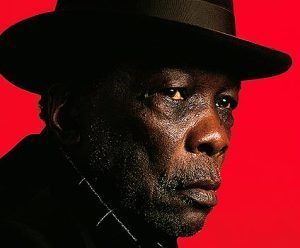
John Lee Hooker
“At one time or another, I’ve had nearly all of those things,” he said. “Hell, I’ve got most of ‘em now. Buddy Guy, Koko Taylor, Muddy Waters, Son Seals, and, yes, John Lee Hooker provide the soundtrack for my life.
“When I was a kid, I picked up old 1940s and 1950s blues LPs at local flea markets. I nabbed about 50 of them before people realized they were worth something, but it’s been years since I could afford any more. A couple of years ago I got one of those iPods, went a little crazy, and downloaded 7,000 songs. I downloaded most of it illegally, but you won’t tell anybody, right?”
Uh, right. Mulligan’s secret was safe with me. I really didn’t want to meet up with one of his “sources.”
“I’m all for downloading music, as long as you don’t steal it like I did,” he continued. ”Musicians should be paid for their work.
“Of course, most of the money just gets gobbled up by record companies anyway, so I’m not feeling all that guilty about it. The one drawback about digital music is that it doesn’t sound as good as vinyl played on a decent turntable. But before long, some brain at Cal Tech or some geek working out of his garage will find a way to fix that.”
I asked Mulligan if he sees any parallels in the decline of the newspaper and music industries. He pulled on his beer again, and lit another cigar. I sensed a serious pronouncement on its way. He stared out the window and then looked back at me.
“Newspapers and record labels? Both dinosaurs. I doubt either will be around much longer,” he said.
“The fall of newspapers is a national tragedy because there’s nothing on the horizon to replace the public service reporting they once did. I can’t begin tell you how bad this is for the American democracy. Record companies, on the other hand, rarely served anyone but themselves. Some of them ripped off musicians for decades. In its death throes, the industry is worse than ever.
“Today, you can’t get a record contract unless you look steamy in a music video. Would a major label sign a young Ella Fitzgerald, Aretha Franklin, or Koko Taylor today? Hell, no! They’d rather sign media concoctions like Nicki Minaj and Britney Spears. Today, a lot of young musicians are bypassing labels, recording their music themselves, and finding audiences online. Good for them.
He took a deep breath. He seemed like he wanted to say still more, but I thought I would change the subject a bit. I asked him about seeing live shows over the years.
“When I was a kid, my family never had money to spend on live music,” he said. “Dad pinched pennies just to bring home an LP once in a while. I was 20 years old before I saw a live show.
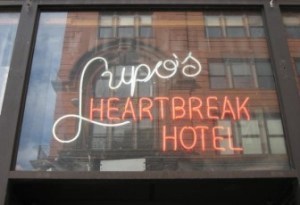 “It was at Lupo’s Heartbreak Hotel here in Providence,” he said, fingering his teeshirt, “where Steve Parisi, a moonlighting contractor with gravel in his voice, fronted a local band that did rock covers.
“It was at Lupo’s Heartbreak Hotel here in Providence,” he said, fingering his teeshirt, “where Steve Parisi, a moonlighting contractor with gravel in his voice, fronted a local band that did rock covers.
“I still like Lupo’s, especially when Roomful, Tommy Castro, or Jimmy Thackery are in the house,” he added. “It’s an intimate space, which is a lot better than sitting in the nosebleed seats at the Providence Civic Center. I refuse to call the civic center by its legal name. Dunkin’ Donuts bought the naming rights.”
Ah. A man after my own heart, I thought. He ordered us another round. He seemed to be settling in.
“When I was in my 20s, I had a drinking buddy, Phil Pemberton, who spent his days painting houses and his nights playing New England blues joints,” he remembered. “Phil’s soulful voice can ache with tenderness and then threaten to wreck the rafters. He spent decades struggling to get noticed, but it looks like he’s finally made it. He’s fronting Roomful of Blues now, and the band’s never sounded better.
“Aside from Roomful, Providence doesn’t have a music legacy worth bragging about–unless you happen to be a George M. Cohan fan,” Mulligan said. “Mary Chapin Carpenter and three members of The Talking Heads did graduate from Brown University, but it’s not like they’re from here. The most famous music group to come out of Rhode Island is the Cowsills. ‘Nuff said.”
And the best concert he’s ever seen? Actually, given Mulligan’s musical obsession, it was a dumb question.

Buddy Guy
“Buddy Guy. Anyplace, anytime. He appears anywhere within a hundred miles, and I’m there. I hope I’m that cool when I’m 75–but then again, I’m not that cool now.”
Then, he took another pull from his beer, then laughed.
“The worst had to be when I let a girlfriend talk me into taking her to a Blues Magoos concert. After that evening, she was no longer my girlfriend. Whenever that ‘music’ comes back to me in a nightmare, I scream in my sleep.”
And what makes him grab for yet another Killian’s and a good cigar? His answer was not surprising.
“John Hiatt’s haunting blues song, “Feels Like Rain,” makes me crack open a bottle every time. I’m hooked on Buddy Guy’s solo take on it, and the one Buddy recorded with Bonnie Raitt.”
That made me think about one last, very serious question I wanted to ask him. I knew it might be touchy, but decided to try it anyway.
“What song would Rosie and you dance to, if you could?”
Talking about the love of his life, his inspiration, though she was no longer with us, might be hard for him, but I thought that if she were brought up in a musical context, he might go for it.
He did.
“’Twist and Shout.’ The song is a sexy celebration of life, bodies gyrating and no holds barred. I prefer the raucous John Lennon version, but the Isley Brothers’ take on it always gets me off my bar stool for a twist or two.”
And, with that, Liam Seamus Aloysius Mulligan got off his bar stool and strode off into the night, to continue to defend the powerless, expose corruption, and give honor to his blues.








June 26, 2012
Look Who’s Reading “Cliff Walk.” It’s dancer and choreographer Paloma McGregor!
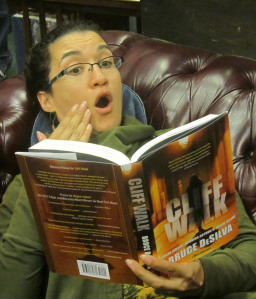 Paloma is co-founder of Angela’s Pulse, a New York performance company, and dances with Liz Lerman Dance Edge and Urban Bushwomen, two fine New York dance troupes. Before that, she was a reporter at The Cleveland Plain Dealer. (How’s THAT for a career change!).
Paloma is co-founder of Angela’s Pulse, a New York performance company, and dances with Liz Lerman Dance Edge and Urban Bushwomen, two fine New York dance troupes. Before that, she was a reporter at The Cleveland Plain Dealer. (How’s THAT for a career change!).
Paloma and her talented sister Patricia were the creative forces who turned “Blood Dazzler,” my wife’s award-winning poetry collection about Hurricane Katrina, into an off-Broadway dance production.
Cliff Walk is the second novel in my series featuring Providence, R.I., investigative reporter Liam Mulligan. The first, Rogue Island, won both the Edgar and the Macavity Awards and was a finalist for the Shamus, Anthony and Barry Awards. Cliff Walk has received rave reviews, including coveted starred reviews in Publishers Weekly and Booklist. Most professional reviewers say it’s even better than the first book.
The Mulligan novels can be purchased here.








June 22, 2012
Crime Novelist Chris Knopf Interviews Me about “Cliff Walk.”
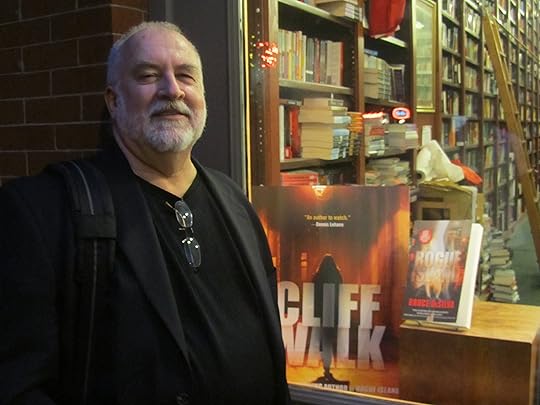
Me at the Mysterious Bookshop
Fellow crime novelist Chris Knopf interviewed me for his website. He asks, among other things, why so many journalists are turning to crime fiction and what makes Rhode Island, the setting for my Mulligan novels, such an odd place.
You can find the interview here.








Who’s Reading “Cliff Walk” Now? It’s Mystery Writer Maggie Sefton.
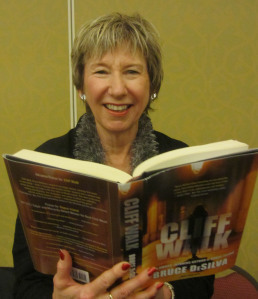
Maggie Sefton
Maggie Sefton is the author of two fine series, the Kelly Flynn mysteries and the Molly Malone mysteries. You can learn all about her here.
Cliff Walk is the second novel in my series featuring Providence, R.I. investigative reporter Liam Mulligan. The first won both the Edgar and Macavity Awards and was a finalist for the Anthony, Shamus, and Barry Awards. Reviewers are calling Cliff Walk even better. You can purchase the books here.








June 19, 2012
Look Who’s Reading “Cliff Walk” Now! It’s Best-Selling Thriller Writer John Lescroart
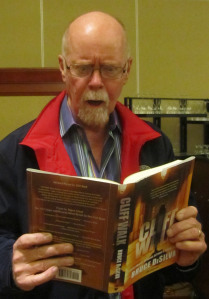
John Lescroart
John Lescroart, who spent his youth as the front man for Johnny Capo and His Real Good Band, a San Francisco rock group, has been writing fiction is entire adult life. Today, he’s one of the finest thriller writers in the business.
I took the picture when we got together at a recent crime writers’ conference on the west coast. You can find John’s work here.
Cliff Walk is the second in a series featuring Liam Mulligan, an investigative reporter at a dying Providence newspaper. The first, Rogue Island, won both the Edgar and the Macavity awards and was a finalist for the Shamus, Anthony, and Barry awards. Reviewers are calling Cliff Walk even better, with Publishers Weekly and Booklist giving it coveted starred reviews. You can find both books here.








Sophomore Jinx?
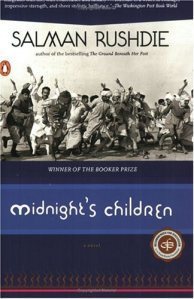 Since my second Mulligan crime novel, Cliff Walk, was published in May, I’ve gotten a lot of questions about how I managed to avoid the sophomore Jinx.
Since my second Mulligan crime novel, Cliff Walk, was published in May, I’ve gotten a lot of questions about how I managed to avoid the sophomore Jinx.
There’s a widespread belief that a lot of writers who produce strong first books fall flat with their second books. Maybe so, but it certainly doesn’t happen to everybody. Check out this list of great sophomore novels from the OEDb website.








June 18, 2012
Look Who’s Reading “Cliff Walk” Now. It’s Award-Winning Crime Novelist Gar Anthony Haywood.
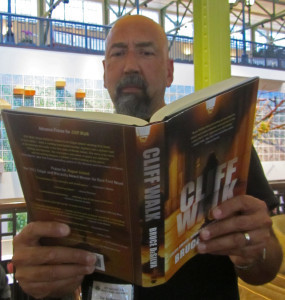
Gar Anthony Haywood
Gar Anthony Haywood is the winner of both the Anthony and Shamus Awards. I just finished his 2009 stand-alone novel, Cemetery Road, and it’s terrific. Fine writing, great characters, and a riveting story.
I caught up with Gar at a recent crime fiction conference, where I snapped this photo. I plan on picking up more of his work, and maybe you should too. You can find it here.
Cliff Walk is the sequel to Rogue Island, which won both the Edgar and the Macavity awards and was a finalist for the Shamus, Barry, and Anthony awards. The new novel is receiving rave notices, including starred reviews in Booklist and Publishers Weekly. Most reviewers say Cliff Walk is even better than Rogue Island. You can find them both here.








June 15, 2012
Look Who’s Reading “Cliff Walk” Now!
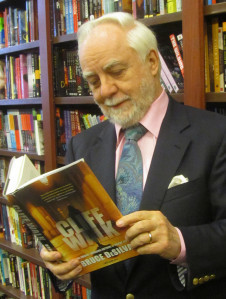
Otto Penzler
It’s Otto Penzler, dean of New York’s crime fiction editors and proprietor of Manhattan’s famous Mystery Bookshop.
Cliff Walk is the second book in my series featuring Liam Mulligan, an investigative reporter at a dying Providence, R.I., newspaper. The first, Rogue Island, won the Edgar and Macavity Awards and was a finalist for the Anthony, Barry, and Shamus Awards. Reviewers are calling Cliff Walk even better, with both Publishers Weekly and Booklist giving it coveted starred reviews.
You can purchase both books here:











